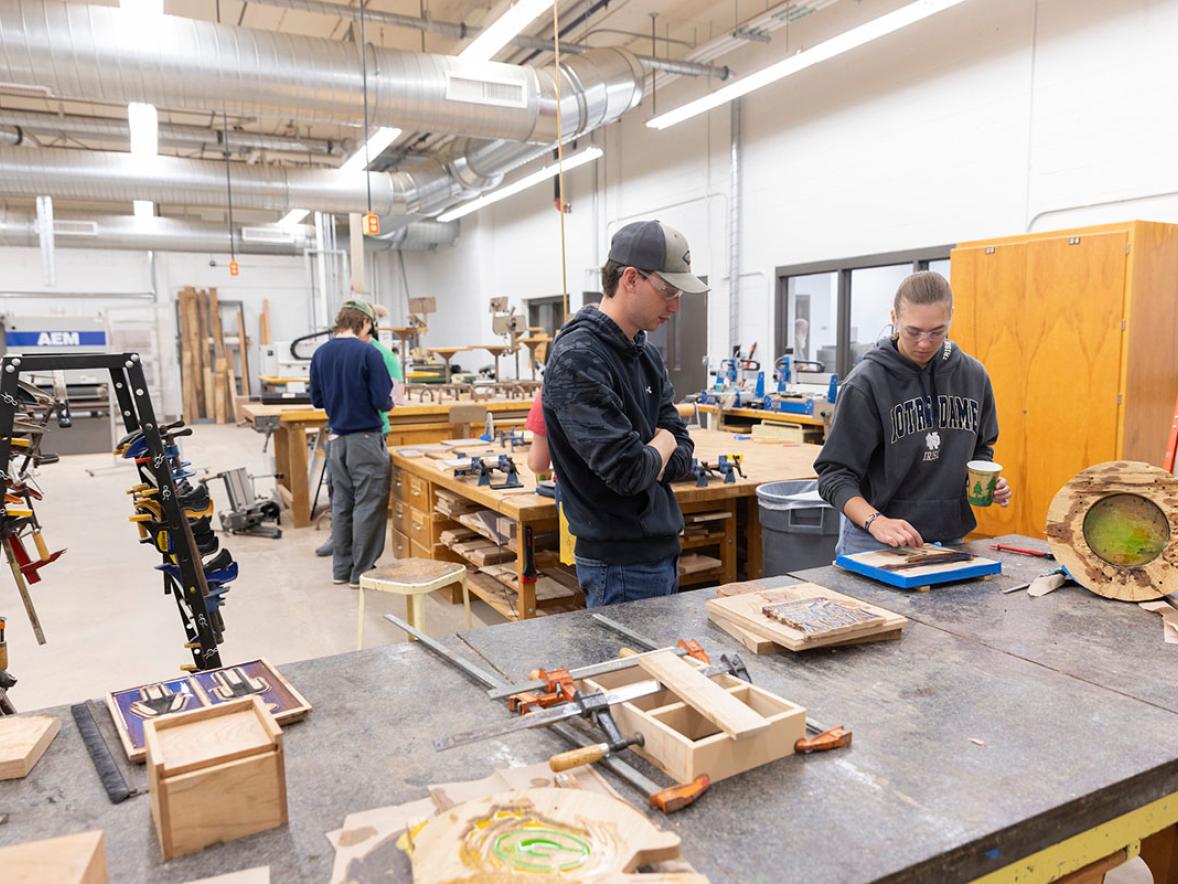In a cross-disciplinary collaboration, four groups of students in Lecturer James Bunkelman’s Light Construction Methods class are designing and building two raised garden beds, one raised tool bench and one raised tool holder for a senior living home.
The project is part of a service-learning activity, as their final products will be delivered to The Neighbors of Dunn County for the residents to use and enjoy in their garden.
The project was launched last summer during a new STEAM camp for high school students. The Blueprint for Success: Construction Career Camp, led by Assistant Professor Janelle Skoyen Hestekin, blended practical construction skills with community engagement, thanks to a partnership with Junior Achievement and The Neighbors.
The high school students built prototypes of the garden beds and benches after meeting with The Neighbors residents to learn about their needs, laying the groundwork for the UW-Stout students’ projects.
When Bunkelman’s university students took the project on, “I told them to have fun. I told them what they were to build, but not how to do it. They have free rein in their research, designs and building processes.”
A group of four students is completing an ADA-compliant raised tool bench, built with treated two-by-four pine boards and capable of holding 200 pounds, they estimate. The cross-disciplinary team is:
- Madelyn Pretzer, interior design, of Rochester, Minnesota
- Erika Rivolta, interior design, of Comerio, Italy
- Tanner Schauf, technology education, of Sparta
- Brandy Wolf, construction management, of Le Sueur, Minnesota
Wolf enjoys smaller-scale construction projects and has experience in the building process. “Applying the skills we’ve learned in class to turn our design into reality for a client is very fulfilling,” she said.
The team believes it’s extremely important to know a client’s wants or needs before beginning a design. They designed the tool bench to be ADA compliant, considering the needs of The Neighbors residents. The height is designed so that a person in a wheelchair may sit at the bench comfortably.
“We’re all bringing our own skills into the project,” Pretzer said. “Erika and I have design experience. Next semester, we have a Residential and Senior Living class. This project gives us an early perspective on senior living needs and their possible preferences.”
As a future teacher, Schauf believes collaboration and community involvement are essential. “For teachers, there’s an expectation to be a pillar in the community,” he said. “I hope to connect my classroom with the programs like this at Stout through similar projects that bridge the gap between technology education and field experiences.”
Social responsibility is a fundamental component of the Stout Core curriculum, a series of foundational classes that enhance students’ applied learning while building the soft skills in high demand by employers.





